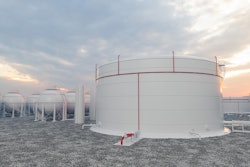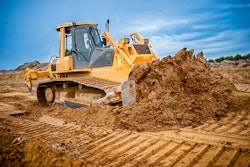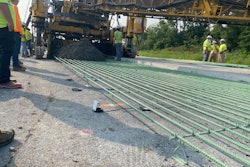
The final guidance for the use of construction materials under President Biden’s "Build America, Buy America Act,” which fell under the $1.2 trillion 2021 infrastructure law to expand standards to require government-funded projects to use more U.S.-made construction products has been issued by the White House.
Finalization of the guidance by the White House Office of Management and Budget (OMB) supports the implementation of the law's statutory requirements that certain manufactured products, construction materials, iron, and steel used in federally funded infrastructure projects are made in America.
Critics of the law, which includes multiple construction and roadbuilding related groups including the American Association of State Highway & Transportation Officials and Associated Builders and Contractors, suggested in part that preference for American-made supplies would dramatically increase costs and potentially cause delays based on availability.
While supportive of the intent to expand domestic jobs and manufacturing to avoid further global supply chain disruptions, ABC’s comments on the guidelines sought safeguards against increased costs and delays of projects funded by taxpayers.
Like the Associated General Contractors of America and other groups, ABC continues to have concerns about the implementation of the Buy America requirements.
Conversely, those within the roadbuilding sector gained some amount of relief due in part to the advocacy of the National Asphalt Pavement Association, National Ready Mixed Concrete Association and National Stone, Sand & Gravel Association.
The associations recognized the OMB for ensuring that aggregates, concrete, and asphalt supplied to federally funded construction projects would not be subjected to domestic sourcing requirements.
“These imports are crucial for building roads, constructing waterways, creating housing, and facilitating energy delivery to every community,” a statement by the groups noted.
However, like the general construction groups, officials from the asphalt and concrete groups further indicated that implementation would be monitored across federal and state agencies ultimately responsible for invoking the requirements.
As written, the law sets forth these standards for construction materials while serving as a guide to federal agencies in using taxpayer dollars to strengthen the economy by supporting the creation of jobs in both construction and manufacturing by expanding domestic production through infrastructure investment.
The infrastructure law includes $110 billion for roads, bridges, and major projects; $66 billion for rail; $55 billion for water infrastructure, and $42 billion in broadband infrastructure grants.
Per the final guidance, the OMB set standards of manufacturing for plastic and polymer-based products, glass including optic glass, lumber, engineered wood, drywall, fiber optic cable, and optical fiber.
Engineered wood was added, but additional construction materials such as paint, stain, and bricks were not.
As requested by the American Road & Transportation Builders Association and the Transportation Construction Coalition, Buy America does not apply to "tools, equipment, and supplies, such as temporary scaffolding brought to the construction site and removed at or before" the project's completion.
Also, cement and cementitious materials, aggregates such as stone, sand, or gravel, or aggregate binding agents or additives are not included. However, under the guidelines, those types of materials will not be exempted from coverage if they are part of a manufactured product brought to the jobsite, such as precast concrete.
Wet concrete and hot mix asphalt will remain exempt.
Per the final document, any item incorporated into a project will fall under one of four categories for compliance. These are iron, steel, construction materials, and manufactured products.
Specific domestic manufacturing processes are delineated for all eight categories of construction materials that are included.
For qualification, the manufactured products must be U.S. manufactured and the cost of domestic-made components must exceed 55% of the cost of all components.
Per a rule issued by the Biden administration in March 2022, the percentage will increase to 60% in October, 65% in 2024 and 75% in 2029.
The cost of components for manufactured products is defined as acquisition cost and transportation costs for components purchased by the manufacturer, and all costs associated with the manufacture of any components created by the manufacturer.
For the various construction materials, there are specific manufacturing guidelines. Further, manufactured products are those processed into a specific form or shape or combined with other materials that do not consist wholly or predominantly of iron steel, or both and are not construction materials.
Policy for issuance of waiver of compliance also is included in the guidance. Justifications for waivers include American-made products not being sufficiently available, the cost of U.S. materials would increase the cost of the overall project by more than 25%, or if the materials requirement is inconsistent with the public interest.
In addition, the U.S. Department of Transportation (U.S. DOT) finalized its waiver exemptions.
Per the U.S. DOT guidelines, non-compliant products that total the lesser of $1 million or 5% of a project’s total applicable costs are exempt.
Also, any federal-aid highway projects where federal funding is below $500,000 are exempt.
According to the U.S. DOT, these exemptions save on administrative costs because they may cover much of a project's "commercially available off-the-shelf" products, which are harder to document and certify for Buy America compliance.
The guidance will take effect 60 days after its publication in the Federal Register.













